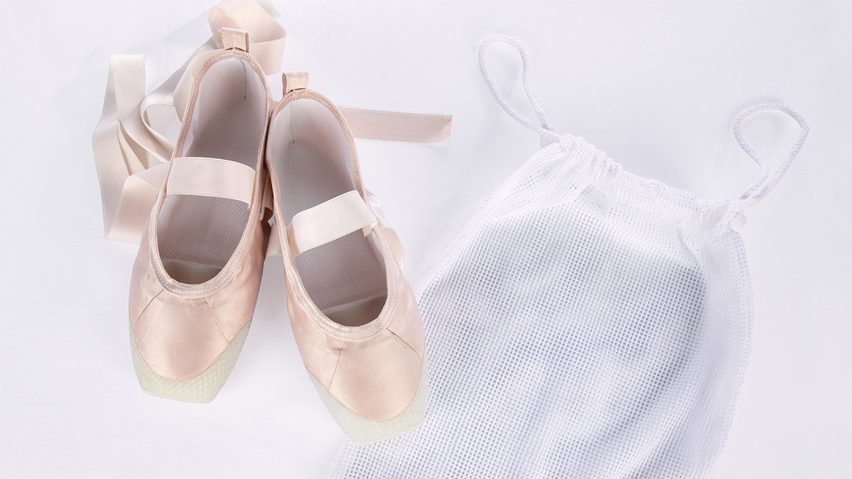Bezalel Academy of Art and Design graduate Hadar Neeman has created personalised ballet shoes using 3D-printing technology to reduce dancer's pain.
The reimagined ballet shoe is adapted to fit the user's foot, providing comfort and protection, with the result three-times more durable than traditional ballet shoes.
While looking for a field where she could apply methods of 3D-printed fabrics, the product design graduate from the Bezalel Academy of Art and Design, in Jerusalem, noticed the bruised feet and crooked toes of a ballet-dancing friend.
Neeman realised that 3D printing technology had been employed in almost every domain in life, including sportswear. However, it had not yet been used to improve the shoes worn by ballet dancers.
"I learned about pointe shoes and the more I got into the field, the more I realised that there was a lot of potential for improving the existing shoe and improving the quality of life of the dancers," explained Neeman to Dezeen.
The shoe is made in a multistep process. First the dancer's foot is scanned, then a detailed map of the shoe is created on a computer. The dancer can scan their foot using a mobile phone app.
The sole is modelled using a lightweight, airy lattice-structure to perfectly fit the contours of the foot. The upper part of the pointe shoe is cut on a special shoemaker's last created by Neeman for the project.
The fabric top is integrated into the sole during the printing process, so that the fabric is trapped between printed layers and there is no need for glue or any additional stage of production.
The sole is made from a printed elastomeric polymer and the shoe body is made of an elastic, satin-like material.
Most pointe shoes are still handmade using traditional techniques. Dancers pad their shoes each time they put them on to try and reduce damage done by the position of the foot against the material. The shoes only last through 10 hours of dancing. These shoes also last three times longer than their traditional counterparts.
The P-rouette pointe shoe aims to reduce the risk of injury for the dancer and enables the user to dance on the tip toes with less pain than when using traditional shoes.
Fellow Bezalel Academy product design graduate Oz Biri created remote-controlled ceramic models of military vehicles to open discourse on the "absurdity" of war.

